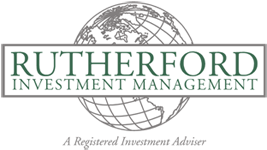Madness In March: Tariffs Tip Off Market Volatility
Published April 11, 2025

The market downturn was in response to the administration’s announcement of these sweeping new tariffs under the banner of “reciprocity.” The explanation was that they were designed to narrow America’s trade deficits with various trading partners, irrespective of whether those countries were charging high import tariffs. Markets, which dislike uncertainty, reacted predictably by repricing stocks lower, thereby reducing risk in an environment where global trade relationships are being rewritten.
Consider the humble coffee maker. When a 25 percent tariff hits imported kitchen appliances, the $80 wholesale cost to your local retailer suddenly jumps to $100. The retail cost then increases from $120 to perhaps $134. But the story doesn’t end there.
The coffee maker company, facing declining sales, cuts costs to survive. It delays developing the new model and cancels the expansion of its distribution center, putting 50 new jobs on hold indefinitely. Meanwhile, companies that make complementary products – specialty coffee, filters, cleaning supplies – see their sales decline. Even the trucking companies that transport these goods see a […]
